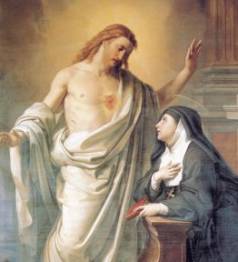V
VeritasLuxMea
Guest
You make a very interesting case, re: the production of Saints. However, I’ve discovered my primary area of confusion here. We seem to be talking about the roles of men and women in two different spheres: the Church and the home, or the domestic Church. Let’s break it down like this:To best understand it, look at what the Church teaches about the nature of the human person. We are a union of body and soul ( Corpra et Amina Unis). The body and soul are not parts of us, but rather we are the union where the two meet.
Now look at the generation of the human person. The feminine is clearly the source of the bodily aspect of the human person. It would not be exclusionary to state that men cannot give birth. Men simply cannot, due to the nature of ‘male’ participate with God in the generation of the human body.
But there is also spiritual birth to consider. That is the second, and equal, aspect of our humanity. And it is to the male that God gives the primary role of spiritual birth, the ‘nursing’ of the soul via the Eucharist, the rebirth of the soul in the forgiveness of sin.
Thus it is no more exclusionary for the man to have the greater and more obvious role in this aspect of humanity than for the woman to have the greater, and more obvious role in the material aspect.
In fact, it would be a REQUIREMENT for equality that Holy Orders be reserved to men, as otherwise, there would be no equally defined role for men as there is for women in the generation of what God values most, a saint.
And thus to bring about a new saint, it requires the cooperation of both male and female, each bringing about their own gifts in cooperation with God. Each serving in their appointed roles addressing those aspects of the human person to which their natures are conformed.
In the domestic Church:
-Men: the head, the protector
-Women: the heart, the nurturer
In the Church:
-Men: the head, the protector (the ordained)
-Women: ???
I seem to be missing that one part to complete the equation.



